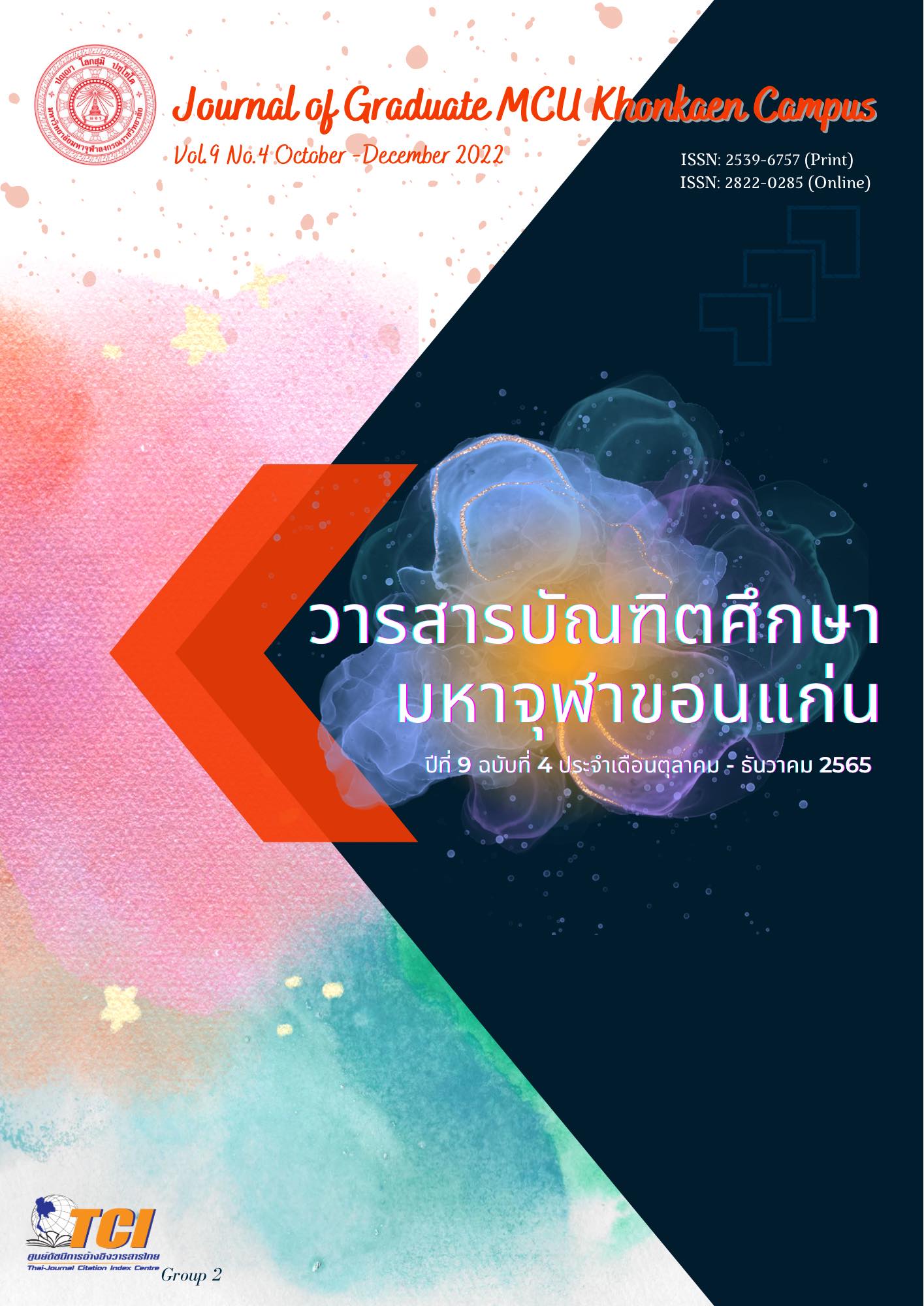An Analysis of Vaṭṭa-Saṁsāra in Theravada Buddhist Philosophy
Main Article Content
Abstract
The objectives of this research were: 1) to study Vaa-Sasra (the Round of Rebirth) in Indian philosophy; 2) to study Vaa-Sasra in Theravada Buddhist philosophy; 3) to analyze Vaa-Sasra in Theravada Buddhist philosophy. This study was conducted by means of documentary research by collecting the data from the primary and secondary sources. The obtained data were interpreted by the descriptive analysis.
The research results were as follows:
Vaa-Sasra in Indian Philosophy with the concept of rebirth appears in Sikh philosophy, Hinduism, Jainism, and Buddhism, with the belief that all beings are reborn in different worlds depending on the results of their actions. In order to escape from Vaa-Sasra, one must develop oneself ultimately to eradicate defilements.
Vaa-Sasra in Theravada Buddhist Philosophy is the cycle of birth and death of all beings in the seven realms of life: Niraya, Peta, Asurakya, Tiracchna, Manuss, Deva, and Brahma. In Buddhist philosophy, the circle of birth and death is considered as Dukkha or suffering.
Based on the analysis of Vaa-Sasra in Theravada Buddhist Philosophy, it was found that Vaa-Sasraa is the cycle of birth and death of all living beings in the seven realms, and all beings will be in this circle until their defilements are exhausted. Theravada Buddhist philosophy, therefore, has the ultimate goal as the liberation from Vaa-Sasra . To liberate from Vaa-Sasra , one must practice three steps: keeping the precepts, cultivating mindfulness, and developing wisdom.
Article Details

This work is licensed under a Creative Commons Attribution-NonCommercial-NoDerivatives 4.0 International License.
References
อภิ.ป. (ไทย) 40/1/2.
ม.ม. (ไทย) 13/444/333.
วิ.มหา. (ไทย) 1/12-14/7-9.
สฬา. (ไทย) 18/411/473-477.
ม.มู (ไทย) 12/169/101-102.
ที.ปา. (ไทย) 11/169/101.
พระมหาคำรบ ธมฺมธโร. (2547). มโนทัศน์เกี่ยวกับความตายในพระพุทธศาสนา : การศึกษาเชิง วิเคราะห์. (วิทยานิพนธ์ปริญญาพุทธสตรมหาบัณฑิต). พระนครศรีอยุธยา: มหาวิทยาลัย มหาจุฬาลงกรณราชวิทยาลัย.
ปรีชา ช้างขวัญยืน. (2524). การใช้เหตุผล. กรุงเทพ: โรงพิมพ์จุฬาลงกรณ์มหาวิทยาลัย.
ประยงค์ แสนบุราณ. (2549). ตรรกศาสตร์เบื้องต้น. ขอนแก่น: โรงพิมพ์มหาวิทยาลัยขอนแก่น.

